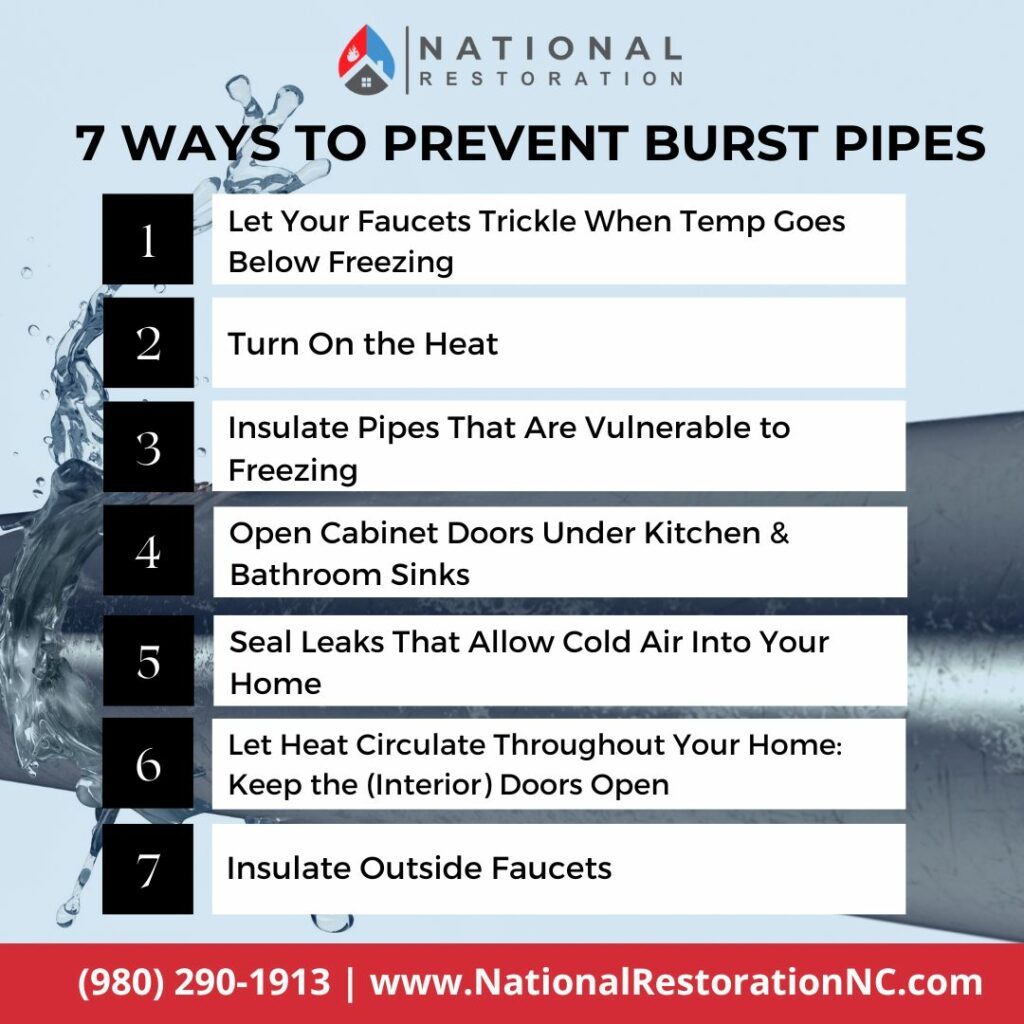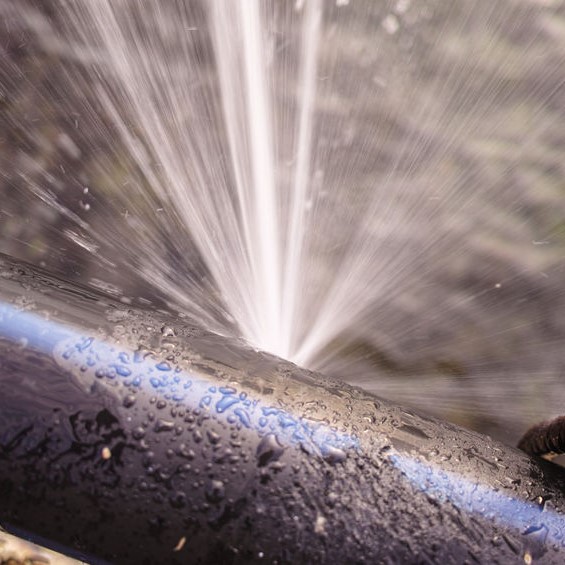Last updated: January 8, 2025
Brrrr…it’s cold out there! Along with forecasts for snow, sleet and ice, freezing temperatures can cause pipes to burst, causing extensive damage. Areas of your home most at risk include unheated sections such as your attic, basement, crawl space or garage. While frozen pipes don’t always burst, it’s important to prevent this from happening whenever possible to save a whole lot of hassle, headache and money spent in repairs and restoration on property damage to your home. As water freezes, it expands and causes major pressure on the metal or plastic pipes that hold it. This can cause the pipes to break or “burst”. Here’s how to prevent that!
7 Ways to Prevent Burst Pipes
1. Let Your Faucets Trickle When Temp Goes Below Freezing
When the temperatures drop below freezing, if you let your faucets drip or trickle water, you’ll keep the water in your pipes moving, which in turn makes it less likely for them to freeze. If ice forms and creates a blockage, the likelihood of a burst pipe is decreased because the pressure is released at the faucet.
2. Turn On the Heat
When it’s really cold out, keep your thermostat warmer than normal and keep it set at the same temperature during the day as you do at night. This will help keep your pipes warm, as well as the floor, which can prevent pipes in the crawlspace from freezing.
3. Open Cabinet Doors Under Kitchen & Bathroom Sinks
By opening your cabinet doors under your kitchen and bathroom sinks, warm air will have a better chance to circulate in and keep the pipes warmer.
4. Insulate Pipes That Are Vulnerable to Freezing
If your pipes are especially vulnerable to freezing, particularly in the attic or basement where there may not be enough insulation, apply the insulation directly to and around the pipes to keep them warmer.
5. Seal Leaks That Allow Cold Air Into Your Home
Be sure to seal up any holes, cracks, gaps or other areas where cold air can reach your pipes.
6. Let Heat Circulate Throughout Your Home: Keep the (Interior) Doors Open
If you have any drafty rooms that always seem to be a bit cooler than others, be sure to keep all of your interior doors open throughout your home. This will help circulate heat and protect those pipes in the floors and walls.
7. Insulate Outside Faucets
Protect your pipes by insulating outdoor faucets. You can use anything from towels, blankets, newspaper or Styrofoam.

What to Do If You Have a Frozen Pipe
- If you think you might have a frozen pipe, run the water, it will help melt ice in the pipe.
- You can apply heat by using an electric heating pad wrapped around the pipe, a blow dryer, or a portable space heater.
- You can wrap the pipes with towels soaked in hot water.
- Be sure to check all faucets throughout your home. If one pipe freezes, others may be frozen as well.
Remember, it just takes one burst pipe to wreak major havoc on your home and cause a whole lot of damage.
Call National Restoration®️ North Carolina for 24/7 Emergency Services!
Have a burst pipe and need water mitigation services? Call our experts at National Restoration North Carolina at 980-290-1913!
About National Restoration North Carolina
National Restoration North Carolina is your local leader in restoration, mitigation, remodeling, renovations, and roofing. As a licensed general contractor with over 20 years of experience, our expert team manages everything from A to Z to keep your property beautiful. Whether you have an emergency from a water or roof leak, fire, smoke, or mold damage, need a new roof, or want a new look or added space, we can help! We serve homeowners and businesses throughout Union, Cabarrus, Mecklenburg, Stanly, Anson, Davidson, and Catawba Counties.
RESOURCES


